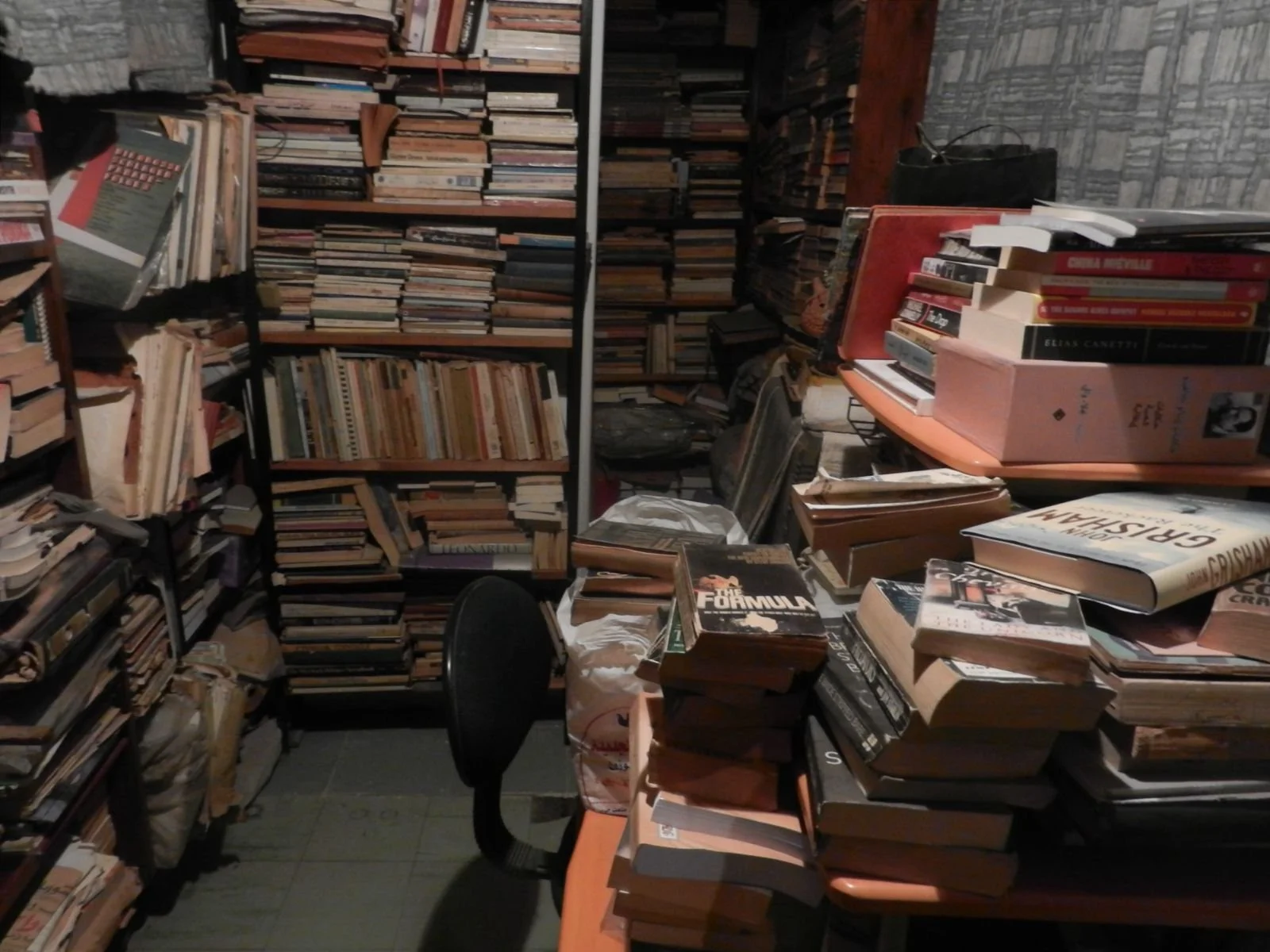أنا عايز أتكلم عن حاجتين اتعلمتها من صديقي المرحوم صنع الله
الأول: ضرورة وجود أرشيف، يعني ضرورة القراية وضرورة التواصل وربط الأشياء ببعضها وضرورة عدم النسيان
مش هنسى أبدا ازاي قابلت الأستاذ صنع الله لأول مرة. كان في سنة ٩٢. يومها، كنت أنا في أوائل العشرينات، وكان هو في مثل عمري دالوقتي. روايته العجيبة ذات كانت لسه نازلة في السوق، فرحت أزوره في شقته عشان أكلمه عنها. هو نصحني أركب الترامواي من ميدان الفلكي حتى شارع الحجاز في مصر الجديدة، والرحلة خدت حوالي ساعة وشوية، ولكن نصحني كمان اجيب معايا كتاب كويس عشان الرحلة تبقى ظريفة. نصيحة نافعة فعلا. طلعت السلم ستة أدوار، ولاقيته في استقبالي عند الباب. رحب بيا وقعدنا في الصالون حيث قدم لي كباية شاي وسيجارة، وسألني، "شفت حديقة الميريلاند ع الشمال وأنت جاي في السكة؟". كدا دخلنا على طول في دنيا شخصية ذات، بطلة الرواية
بعد حوار طويل وقبل ما أمشي وراني الأرشيف بتاعه
إذا زرت بيت صنع الله وليلى يوماً، أنت عارف اللي أنا بكلم فيه: رفوف طويلة، مليانة كتب ومجلدات وملفات متراكمة على البعض. وفي كل ملف، مقالات مقطوعة من جرايد ومجلات: بعضها من صحافة الدولة، وبعضها من صحافة المعارضة الوالية، وبعضها من الصحافة الأجنبية، بالألماني والروسي والأنجليزي والفرنسي
من سنوات طويلة، الأستاذ صنع الله كان عنده عادة غريبة شوية: كان بيقرأ ويقصّ الأخبار وبعد كدا، كان بيصنّفها في فئات. ثم كان بيرتّبها في مكتبة، بنظام يسمح له بربط الأشخاص والأحداث والقصص على مدى سنواتٍ طويلة
بصراحة، الموضوع اتهيألي في الأول كأنه جنون وفوضى. كنت أتخيل أن أديب زي الأستاذ صنع الله هيقضّي وقته على سطح الأرض في قراية نصوص ذات القيمة الفكرية أو الفنية. بس لاقيته فخور بنفسه لأنه بيقرا جرايد زي "الأهرام" و"الأخبار" و"الجمهورية" بجادية مكثفة كأنها قصايد معقدة. هذا دمر صورة المثقف اللي كانت خدت في دماغي قبل كدا
مع مرور الوقت وبعد نقاشات طويلة بقيت أفهم: الأستاذ صنع الله كان يدّى لنا درس في القراية. كان بيطرح منهج يساعدنا في التصرف بأكاذيب الأنظمة وفي تناول الخرافات بتاعة الطبقات الحاكمة. كان بيقدم طريقة تخلينا نلاحظ الأنماط العجيبة في الأحداث اليومية ونحفظها ونُحافظ عليها حتى نعود مرة أخرى إلى القراية من جديد. كدا ممكن نكتشف في البيانات الرسمية الحقايق المستخبية في الأساطير. كان يساعدنا نشوف أن الأحداث المنفصلة والأشخاص المنفصلين والمؤسسات البعيدة عن بعضها قد لا تكون منفصلة تمامًا
اللي اتعلمته من الأستاذ صنع الله في رواياته زي ذات واللجنة، وفي نقاشاتنا اللي استمرت ثلاثين سنة أو أكثر، كان منهج لقراية نظام سيطرة وهيمنة، محليًا وعالميًا. وفي الدرس دا، اتعلمت دروسا أخرى، مثلا كيف تعتمد طبقاتنا الحاكمة - هنا وهناك - على النسيان. ظالميننا، هنا وهناك، عارفين كويس حاجة مهمة جدا عن البني آدمين، هي أن احنا، كلنا، فينا ميول شديد للنسيان. ودا نقطة ضعف فينا. لكن في نفس الوقت المرحوم كان بيطرح عبرة بديلة كمان: أحنا برضو عندنا قدرة وطيدة في التذكر، وإذا قدرنا الاحتفاظ بالتجربة والمعرفة في القلب والدماغ، يبقى فيه عندنا فرصة لخلق عالم أفضل، عالم أكثر عدلًا. دا كان درس وهدية من الأستاذ صنع الله، وأنا مَديِن له بها إلى الأبد
الحاجة التانية اللي اتعلّمت من الأستاذ صنع الله هي أبسط بكثير، ولكنه ليس بأقل أهمية. هو الفرح الإنساني في مشاركة برادة شاي أو إزازة البيرة أو علبة السجائر، والقعدة الطويلة في وحضور الأصدقاء. هي متعة بسيطة وعادية، السعادة بأنك قاعد مع الحبايب، وبقى أجمل لو دا بيحصل في بلكونة ضيقة في ليلة صيفية بمصر الجديدة، بعيد عن التقاطعات من مكالمات هاتفية، وبعيد عن صوت تلفزيون صاخب في الخلفية
وحشتني القعدات الطويلة دي. وحشني ركوب الترامواي إلى بيت صنع الله كما وحشني الأرشيف والبلكونة بتاعته كما وحشني هو



